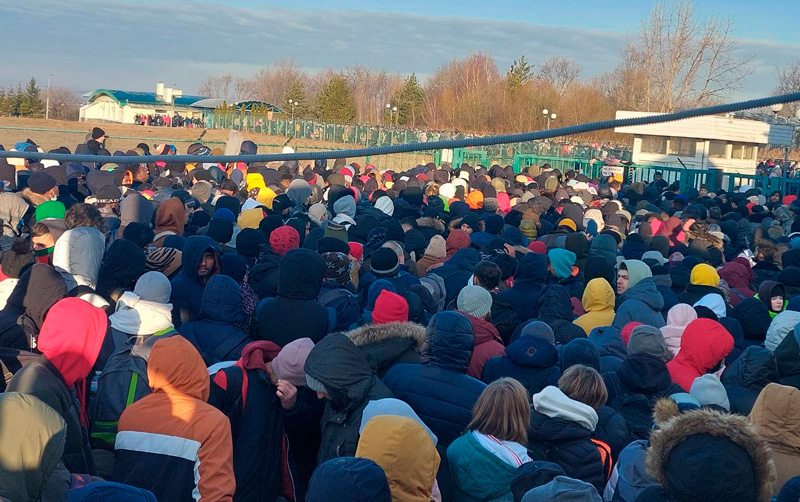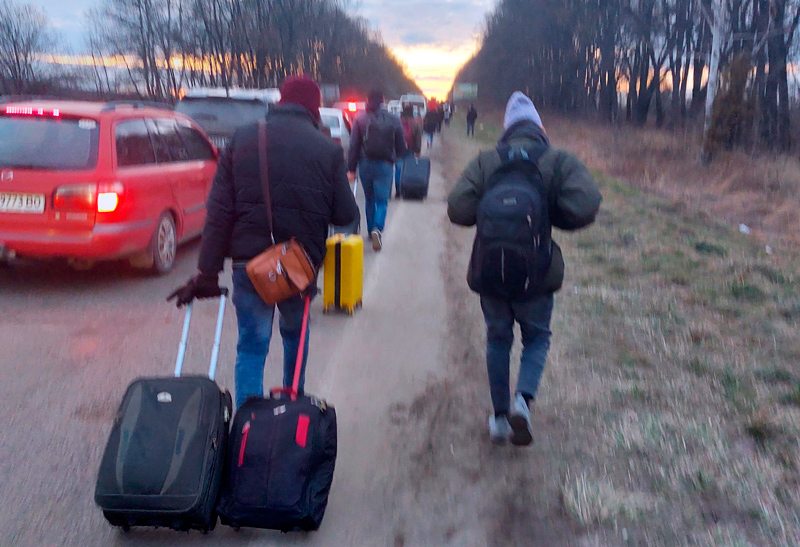Migrants, refugees, exiles: how to name hundreds of thousands of Belarusians forced to leave their homeland
International Migrant Day is celebrated today, on December 18, all over the world. The UN General Assembly established it in 1990 and primarily this day concerned economic migrants. The date was chosen for a reason — on this day, the International Convention on the Protection of the Rights of All Migrant Workers and Members of Their Families was adopted.
In the 34 years since that date, much has changed and today more and more people in different countries are forced to leave their homes and change their usual way of life due to combat actions, wars, and political circumstances. Belarusians have not been spared this problem either. Thus, migration turned into a refugee or flight.
From three hundred thousand to almost a million: how many Belarusians have left the country since 2020
According to Eurostat data, which were published in September 2024, Belarus ranks second in the EU in terms of the number of forced migrants, second only to Ukraine. While Ukrainians leave their homeland because of Russian aggression, Belarusians are forced to become refugees due to the repressive policy of the Lukashenka regime. Moreover, migration has affected not only individual citizens — many public organizations and initiatives have been relocated, as well as parts of the Belarusian IT sector.
In 2023 alone, Belarusian citizens received more than 281,000 first residence permits in EU countries. The majority of Belarusians, which is about 256 thousand, received documents in Poland, 16 thousand in Lithuania, and about two thousand in Germany.
And if we consider the repression during and after the presidential elections as the starting point of mass migration, the figures reach many hundreds of thousands of Belarusians who left their country. Thus, according to Eurostat data, in 2020 Belarusians were issued 64 thousand first residence permits in the EU; next year, about 150 thousand; in 2022, a little more than 309 thousand.

- Belarusians, along with other foreigners, leave Ukraine in the early days of Russian aggression. Photo by Siarzhuk Sys
It should be noted that the most convenient country for Belarusians to flee before the start of the Russian aggression was Ukraine, where several tens of thousands of people moved to. Today, there are several hundred people who have been able to adapt to the new difficult living conditions.
Thus, excluding 2024, the European Union alone has issued approximately 800,000 permits (residence permits and national visas) to Belarusians.
At the same time, Deputy Interior Minister Mikalai Karpiankou had to admit that 350,000 "unsupportive" citizens left Belarus from 2020 to mid-2023.
Data on migration from Belarus for 2024 are not yet available. But, according to BYSOL information alone, for example, 47 people were evacuated from Belarus in November this year. Every month, the Evacuation Service helps dozens of Belarusians to leave the country safely for those who cannot do so legally.

- Screenshot from Belsat.EU
Anaïs Marin: "Migration is directly related to the policy pursued by the government of Belarus"
The problem with the migration of Belarusians today looks quite global, since "people who were forced to move abroad face problems related to ensuring adequate living conditions, including in temporary accommodation, in particular in migrant reception centers, with problems in terms of obtaining decent work and livelihood depending on the available skills and qualifications, as well as in terms of obtaining appropriate and necessary education, including early childhood education and adult vocational training."
This issue was raised back in 2022 in the report of the Special Rapporteur on the situation of human rights in Belarus, Anaïs Marin. The topic of the report was the situation of Belarusians in exile who have been forced to leave their country and are unable to return home safely.
"Their migration is directly related to the policy pursued by the government of Belarus and the practices it applies, as well as to the purposeful creation of a hostile environment that prevents safe return," Anaïs Marin noted.
In addition to the 11 recommendations made by the Special Rapporteur to the Belarusian authorities, she makes recommendations to other states, the international community, and international organizations regarding Belarusians in exile, among which: to promote the creation of safe and accessible entry routes for Belarusians forced to leave their country and ensure the availability of humanitarian channels for entry; to pay special attention and provide support to Belarusian citizens who were in exile in Ukraine and forced to leave again through the war; to create effective mechanisms to give legal status to Belarusian citizens who cannot return.

- Photo by Siarzhuk Sys
On this day, December 18, UN Member States, as well as intergovernmental and non-governmental organizations, are invited to celebrate International Migrants Day by spreading information about human rights and the fundamental freedoms of migrants, sharing experiences, and developing measures to ensure their protection.

















